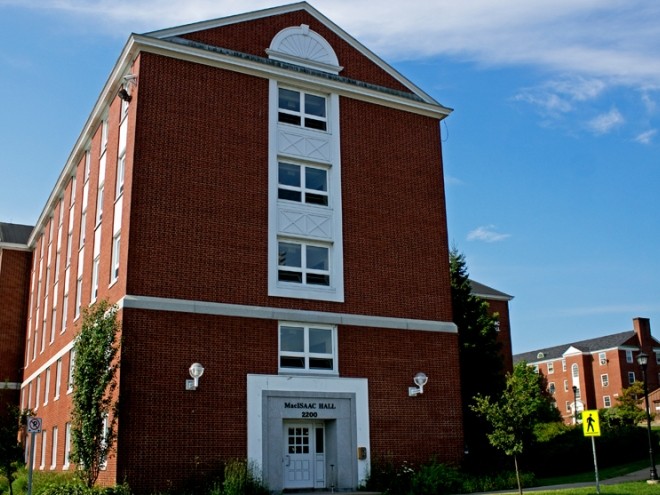Program Overview:
About Master of Arts in Celtic Studies
StFX is pleased to be able to offer the only terminal Master of Arts in Celtic Studies in North America, a 36-credit program based on coursework (18 credits) and a thesis (18 credits). The program draws on the rich Gaelic tradition in Nova Scotia and maintains strong ties with the local Gaelic community. It is very student-focused and has two streams: Scottish Gaelic Studies and medieval Celtic Studies. The Department also enjoys a positive reputation for its teaching and research internationally, with strong links with Harvard University, University of Toronto, University of Glasgow, University of Edinburgh, Trinity College Dublin, University of Limerick, and Utrecht University.
Celtic Studies has as its core the languages, literatures, and histories of Celtic-speaking peoples, from the Continental Celts of ancient Gaul to the modern survivals in Scotland, Ireland, the Isle of Man, Wales, Cornwall, and Brittany. It extends into a range of topics, including archaeology, art, music, literature, folklore, religion, dance, immigration, ethnic, and medieval studies.
Why study Celtic Studies at StFX?
As one of few universities in North America offering the study of Celtic languages, literature, and history of the Celts from about 800 BC to present, you will have unique opportunity to learn in this broad field.
StFX undergraduate and master’s students produce research papers and dissertations, and creative projects. They have become leading lights in the revival and development of Gaelic in both Scotland and Canada and in the promotion of Celtic Studies in general. The Celtic Student Society (‘An Comunn Ceilteach’) is one of StFX’s most active societies.
StFX is home to the largest and most important collection of Scottish Gaelic manuscripts, publications, and recordings in Canada, particularly in the substantial holdings of the Celtic Collection of the Angus L. Macdonald Library.
First year at a glance
Students will typically choose one of two streams: modern Scottish Gaelic (for students with prior knowledge of the language) or medieval Celtic. All MA students, regardless of the stream they choose, are required to take 6 credits in Old Irish (also called Old Gaelic) as it forms the basis for the modern Gaelic languages (Irish, Manx, and Scottish Gaelic) and lies at the core of the field of medieval Celtic Studies.
The program prides itself on its focus on the individual student. Only 1-3 students are accepted into the program each year. Students meets with the Chair of Department and the Graduate Studies Coordinator to create an individual program that reflects their main interests. This focus on the individual has led to extremely motivated students.
Future opportunities
Graduates complete this program with the skills required for academic research in the field of Celtic Studies at an advanced level, and potentially for admission to a PhD program. Former students have gone on to pursue PhD degrees at for example Harvard University, the University of Edinburgh, and University College Cork. Their critical thinking skills, research experience, and academic skills related to communicating their findings mean that graduates from our MA program typically end up with careers in a broad variety of fields that require an academic mindset and skills, including work in cultural institutions, businesses, tourism, and education. Those who specialize in the Gaelic language have the additional option of pursuing career opportunities in Gaelic-speaking regions, including Nova Scotia.
Program details
Available Funding
Most students accepted into the MSc program will be offered a funding package that covers the cost of tuition and some portion of living expenses.
Students who apply prior to February 15 may be eligible for the following:
StFX Graduate Scholarships. No separate application.
StFX Teaching Assistantship. No separate application.
Nova Scotia Graduate Scholarships.
Canada Graduate Scholarships (Masters). Deadline to apply December 1. More information
MITACS Awards
See info about available funding for thesis-based students.
Master of Arts Admission Requirements
Normally an undergraduate Honours degree or equivalent concentration in the subject area (typically about 20 undergraduate courses in the subject area). Examples of related disciplines might include Irish Studies, degrees in the various Celtic languages (Irish, Welsh, Scottish Gaelic, Breton), History, Linguistics and English, with a specialization in medieval culture.
Minimum 70% average.
Language requirement: IELTS 6.5 with no band below 6.
Thesis-based Masters are for exceptional students who have demonstrated scholarly potential. Meeting the minimum admission standards does not guarantee acceptance.
Before Applying
Applicants interested in the Master of Arts in Celtic Studies and who meet the minimum admission requirements should contact the department directly to assess their suitability for the program.
Apply
Applicants who wish to be considered for StFX scholarships must apply by February 15, 2024 for a September 2024 start. Some external scholarships have earlier deadlines.
Apply to StFX and pay the application fee. (The application fee is not refundable. Students should confirm their suitability for the program before applying. See “Before Applying” above.)
Gather the supporting documents:
Original transcripts: No students will be accepted to the university until original transcripts have been received and verified. Arrange to have sealed transcripts sent from each college or university you have attended.
Evidence of language proficiency
Submit documents:
Contact the Department
Students who are interested in applying to the program should contact the department prior to submitting an application to discuss research areas and opportunities.
Graduate Coordinator: Dr. Michael Linkletter




